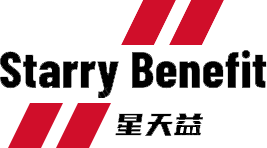Specializing in the production of various stainless steel pipes, plates, coils, rods, pipe fittings, high nickel alloy steel products, high temperature resistant products
-
-
Steel Plate
-
Carbon steel sheet / plate
-
Stainless steel sheet / plate
-
Galvanized steel sheet / plate
-
Wear resistant plate
-
Weathering plate(Corten plate)
-
Boiler vessel plate
-
Ship plate
Moew -
-
Steel Coil
-
Carbon steel coil / roll
-
Stainless steel coil / roll
-
Stainless steel coil / roll
-
Galvanized coil / roll
Moew -
-
Steel Pipe
-
Stainless steel round pipe / tube
-
Stainless steel square pipe / tube
-
Galvanized round pipe / tube
-
Galvanized square pipe / tube
-
Carbon steel round pipe / tube
-
Carbon steel square pipe / tube
-
Spiral Welded Pipe
Moew -
-
Steel Round Bar
Moew -
Steel Profiles
Moew -
Color Coated Coil
Moew -
Steel Rebar
-
Wire Rod
-
Copper
Moew -
Aluminum
Moew -
Stainless Steel Pipe Fittings
Moew
-
Effects of common elements on steel properties
Carbon steel: Steel with a carbon content of less than 2.11% and no specially added alloying elements is called carbon steel, or carbon steel for short.
May 27,2024
Carbon steel: Steel with a carbon content of less than 2.11% and no specially added alloying elements is called carbon steel, or carbon steel for short.
Effects of common elements on steel properties
In addition to the two main elements of iron and carbon in carbon steel, there are always certain impurities in steel-making raw materials, and some impurities are also brought in during the smelting process, such as Si, Mn, P, S, non-metallic inclusions and oxygen, Nitrogen, hydrogen and other gases. They have a certain impact on the performance and quality of steel.
(1) Manganese (Mn). Manganese mainly comes from steelmaking deoxidizers. The manganese remaining in the steel after deoxidation can be dissolved in ferrite and cementite, improving the strength and hardness of the steel. In addition, manganese also forms MnS with sulfur, thereby reducing the harmful effects of sulfur on steel. Therefore, manganese is a beneficial element in steel, and its content is generally 0.25% to 0.80%.
(2) Silicon (Si). Silicon is an element that remains in the steel after the deoxidation reaction with ferrosilicon deoxidizer in the later stage of steelmaking. Silicon can dissolve in ferrite and has a certain strengthening effect on steel, so silicon is a beneficial element in steel. However, due to its small content, its strengthening effect is not great and should generally be controlled within 0.17% to 0.37%.
(3) Sulfur (S). Sulfur is a harmful element brought into steel by pig iron and fuel. It forms a compound FeS with iron in steel. FeS and iron form a eutectic (Fe+FeS) with a low melting point (985°C). When the steel is heated to 1000-1200°C for rolling or forging, the eutectic distributed along the grain boundaries has melted, and the connections between the grains are destroyed, causing the steel to crack. This phenomenon is called thermal brittleness. Therefore, sulfur is a harmful element in steel, and its content must not exceed 0.05%.
(4) Phosphorus (P). Phosphorus is a harmful element brought into steel by pig iron. Part of the phosphorus dissolves in ferrite to form a solid solution, and part of it forms a very brittle compound Fe3P during crystallization, causing the plasticity and toughness of steel to drop sharply at low temperatures (generally below 100°C). This phenomenon is called cold brittleness. When the phosphorus content in steel reaches 0.10%, cold brittleness becomes serious. Therefore, phosphorus is a harmful element in steel. Generally, the phosphorus content in steel is limited to less than 0.04%.
(5) Non-metallic inclusions. Non-metallic inclusions in steel include oxides, sulfides and silicates. These inclusions are produced by the steelmaking reaction and cannot be completely eliminated, or are brought in from refractory materials such as slag, furnace body, and ingot casting equipment. Non-metallic inclusions reduce the strength and plasticity of steel, so the fewer inclusions, the better the quality of the steel.
PREVIOUS:

COOKIES
Our website uses cookies and similar technologies to personalize the advertising shown to you and to help you get the best experience on our website. For more information, see our Privacy & Cookie Policy
COOKIES
Our website uses cookies and similar technologies to personalize the advertising shown to you and to help you get the best experience on our website. For more information, see our Privacy & Cookie Policy
These cookies are necessary for basic functions such as payment. Standard cookies cannot be turned off and do not store any of your information.
These cookies collect information, such as how many people are using our site or which pages are popular, to help us improve the customer experience. Turning these cookies off will mean we can't collect information to improve your experience.
These cookies enable the website to provide enhanced functionality and personalization. They may be set by us or by third-party providers whose services we have added to our pages. If you do not allow these cookies, some or all of these services may not function properly.
These cookies help us understand what you are interested in so that we can show you relevant advertising on other websites. Turning these cookies off will mean we are unable to show you any personalized advertising.
Request Quote
We will contact you within one working day. Please pay attention to your email.

